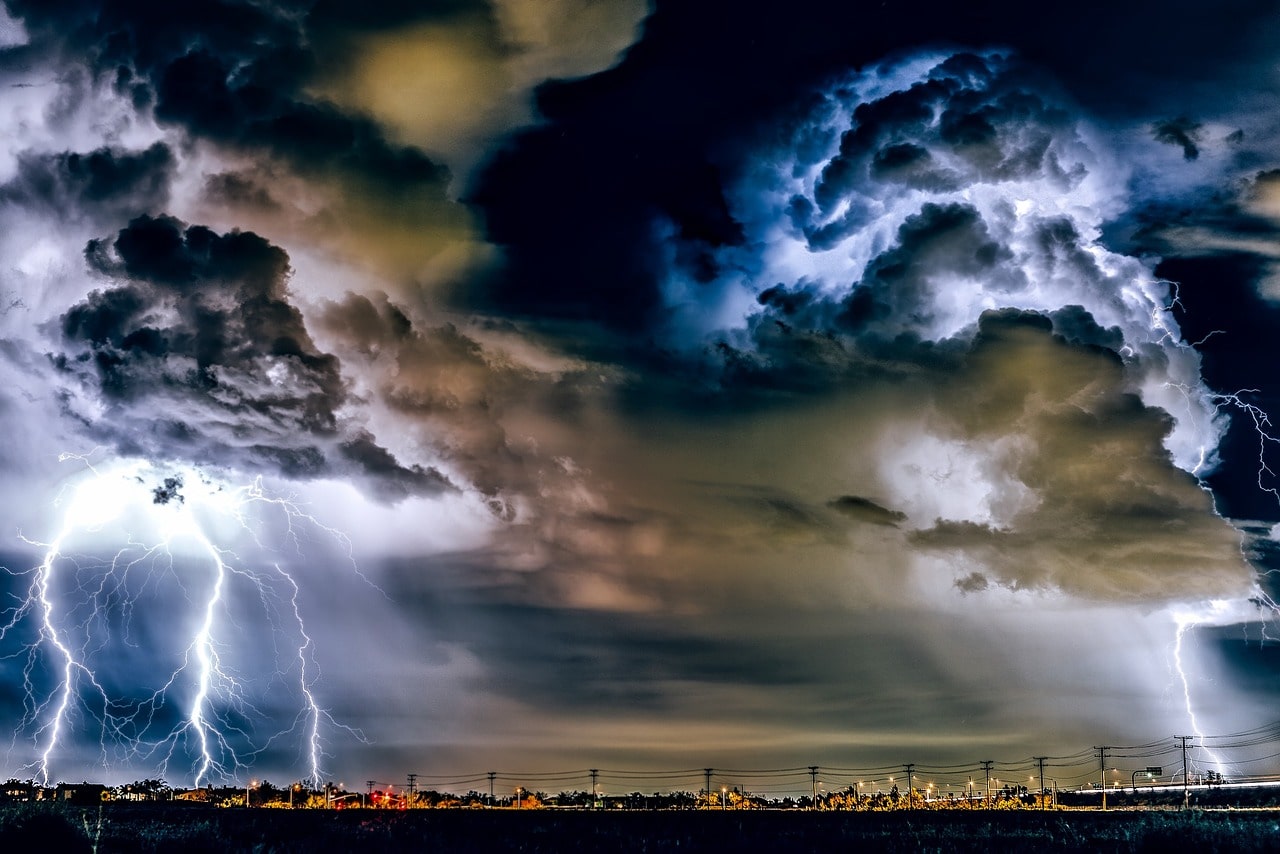

Climate change corresponds to a series of prolonged changes in Earth's climatic conditions, mainly due to human activity. The global climate is undergoing changes that affect both temperatures and the frequency and intensity of extreme weather phenomena such as hurricanes, floods, heat waves, and droughts. These changes, which are increasingly visible around the world, are causing serious consequences on natural ecosystems and people's lives. But how did we get to this situation? The main cause is the massive use of fossil fuels (coal, oil, natural gas) and deforestation, which release huge amounts of greenhouse gases into the atmosphere. These gases trap heat from the sun, causing global warming, a major driver of climate change.
The climate of our planet therefore is changing due to the excessive presence of greenhouse gases in the atmosphere. This process, known as the "greenhouse effect," is natural and essential for maintaining the Earth's temperature at habitable levels, but the problem is the intensification of the effect itself. Human activities have dramatically increased the concentration of greenhouse gases, leading to accelerated warming.
Here are the main greenhouse gases responsible for this change:
Other activities, such as industrial production and waste management, contribute to the emission of gases that damage the ozone layer and promote atmospheric warming. The combination of these factors is altering the climate balance at an accelerating rate.
Here is an in-depth analysis of the main causes of climate change:
Climate change is not an entirely new phenomenon for the Earth, but the current global warming has been accelerated by human intervention since the Industrial Revolution in the 18th century. Before that time, changes in climate were related to natural factors such as variations in the Earth's orbit, solar cycles and volcanic activity. Intensive use of fossil fuels and increased industrial activities, on the other hand, initiated a massive release of CO₂ and other greenhouse gases. As a result, there has been an increase in temperatures not seen in such short periods in the history of our planet.
Scientists predict that the climate will continue to warm in the coming decades, even if drastic measures are taken to reduce emissions. This is because greenhouse gases have a prolonged lifetime in the atmosphere, so their impact will continue to be felt for a long time. However, acting now is critical to avoid worst-case scenarios. Limiting global temperature rise to within 1.5°C of pre-industrial levels could avoid the most devastating consequences of climate change.
If global warming continues to intensify without concrete action, our planet will likely face increasingly severe consequences. Some of the projected impacts are:
To counter this, concrete actions are needed. Theuse of clean energy sources, such as solar, wind, and hydropower, can reduce dependence on fossil fuels and CO₂ emissions. Improving the efficiency of buildings and means of transportation leads to a decrease in energy waste and environmental impact. Planting trees and protecting remaining forests helps absorb CO₂ and preserve the balance of the ecosystem. Adopting more sustainable agricultural practices can also reduce emissions and preserve biodiversity. For example, methods such as crop rotation and the use of organic fertilizers help keep the soil healthy and productive.
In addition, daily actions such as reducing plastic use, preferring public transportation, decreasing meat consumption and recycling properly can make a difference.
There are tools at our fingertips that can help us live more sustainably and reduce our carbon footprint. Here are four useful ones to consider:
Addressing the problem we have described in this in-depth study is an urgent priority: its effects are already visible and affect people's lives, nature, and the economy. Each delay worsens the situation and makes it harder to avoid the most serious consequences. Acting now is essential to preserve the Earth and ensure a better future.

Lascia un commento
Comments